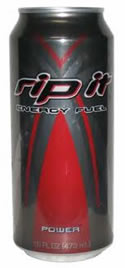
For reference, some of the popular, small, two-ounce sized "shots" contain up to 200 milligrams of caffeine within that small container alone. Food and Drug Administration recommends only allowing yourself 400 milligrams of caffeine a day, there's a wide variation in both how sensitive people are to the effects of caffeine and how fast their bodies metabolize it. Additionally, it can increase jitteriness, anxiety and the inability to sleep well, with stress and anxiety often worsening symptoms of many gastrointestinal conditions, including Irritable Bowel Syndrome (IBS) and Inflammatory Bowel Disease (IBD). Caffeine may also act as a mild diuretic, meaning it can increase urine output.

This stimulating effect may lead to loose stools or diarrhea, which can contribute to dehydration. The quick boost in energy might seem helpful in the moment, but how do these ingredients impact your digestive system?įor one, caffeine is a stimulant that increases gut motility, or the contraction of the muscles that propel contents in the gastrointestinal tract.

Office of Graduate and Postdoctoral StudiesĮven though they're loaded with caffeine and sugar or artificial sweeteners, energy drinks have gained popularity in the market over the past several years.Institute for Healthcare Policy & Innovation.Elizabeth Weiser Caswell Diabetes Institute.Computational Medicine & Bioinformatics.Alfred Taubman Medical Research Institute Leadership and Enrichment for Academic Diversity (LEAD).Implicit Bias Training for Community Members.Implicit Bias Training for Michigan Medicine.Health Equity and Quality Scholars Program.Frequently Asked Questions About Sponsorship.

About Osher Lifelong Learning Institute.Osher Lifelong Learning Institute (OLLI).Community Outreach and Engagement Programs.About Community Health Planning and Investment.


 0 kommentar(er)
0 kommentar(er)
